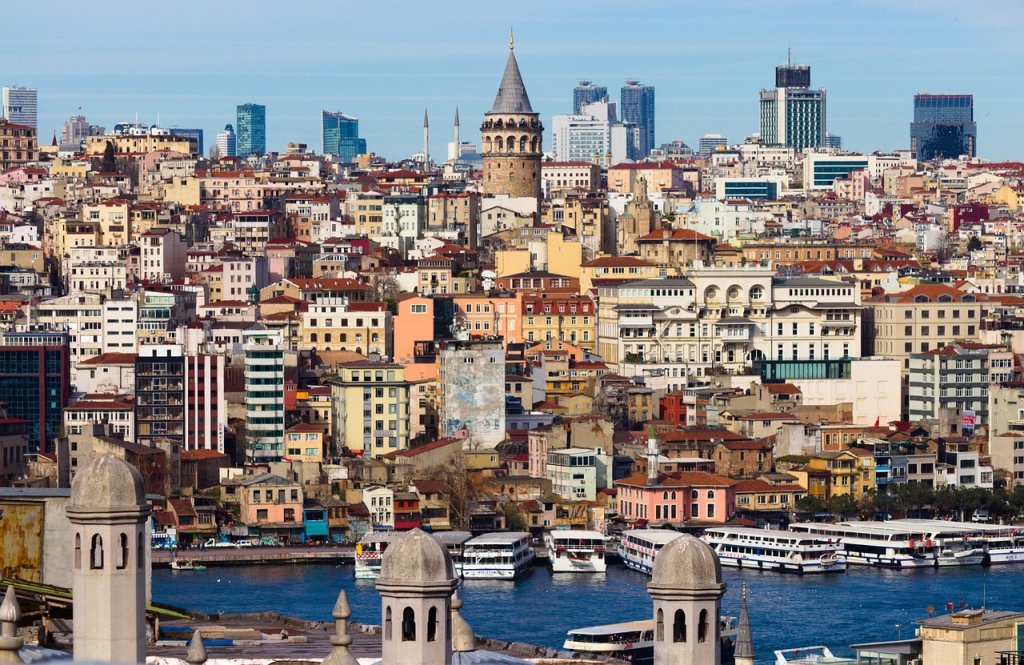
The British Secret Archives, located at Kew Gardens in London, have been accessible to researchers for a certain period, revealing materials that have surpassed their statute of limitations. Within these archives, it is possible to find the notes of Nevile Henderson, a high commissioner who served the British Foreign Office in Turkey between 1920 and 1924. A seasoned diplomat and intelligence officer, who would later assume the role of the British Ambassador to Berlin from 1937 to 1939, Henderson, in notes sent to London before the declaration of the Republic, wrote about Mustafa Kemal, a long-standing republican, eventually proclaiming the republic. However, the specific details of this form of governance remained unclear. Henderson’s information gathered from his sources in Ankara and Istanbul proved accurate, coinciding with the declaration of the Republic on October 29, 1923. Furthermore, the second segment of the intelligence notes remains accurate and valid. Despite the republic being the established form of governance, the codes that fill it with meaning and define it beyond its borders are still not entirely specified. This ambiguity may stem from a state identity crisis dating back 200 years before the establishment of the Turkish Republic. Here, I am undoubtedly primarily addressing the issue of state identity. While acknowledging significant problems in societal identity, my fundamental concern is the state identity directly influenced by decision-makers.
The notion that the Republic emerged from nothing is a classical and not easily open to interpretation, I can easily argue that it is not accurate. The Republic is the product of a highly intelligent cadre that accurately understood its era, implementing a modernization that dates back in around 200 years. In this context, the Republic found itself compelled to inherit many aspects of the Ottoman Empire, be it political, economic, or social, despite its wishes. This obligation gave rise to internal conflicts and the identity crises they generated. What I mean is that the young Republic, despite approaching it with scepticism, chose to join the Western club as the most rational choice in an effort to adapt to the requirements of the time. This choice was reflected in the organization of the relationships between religion and the state, the state and society, and in the economic sphere. In this regard, the Early Republic aimed to be Westernized politically, although it had a Muslim majority and was culturally hybrid. This undoubtedly led to the formation of a unique identity within the state structure. More accurately, the goal was to create such an identity for the new state, but at the end of the century, Turkey has yet to fully define and articulate an identity description beyond its borders. This lack of clarity has both internal and external causes, and these two groups of reasons mutually reinforce each other.
Scholars of various international relations subjects have always tended to interpret Turkey’s geographical position as a strategic asset. Undoubtedly, Turkey’s geographical location, historical mission, and influential characteristics naturally make it primarily a regional power, but a middle-ground power. However, this situation essentially leads to an oxymoronic structure within itself. To put it more simply, it harbours contradictions within its state identity and experiences the pains of these contradictions conflicting with each other. Acting more as a divider than a bridge between the East and the West, Turkey, during the Cold War years, sometimes felt squeezed between the Western and Eastern blocs. Although this situation has been rationalized and instrumentalised institutionally by the Turkish Ministry of Foreign Affairs, it has often led to internal identity crises within the state structure. Is Turkey Western? Is Turkey Eastern? Is Turkey secular? Is Turkey Muslim? Is Turkey dependent on a liberal economy? Is Turkey inclined towards a state-controlled economy? Questions like these, when attempted to be answered through a correct analysis, will likely yield responses like ‘Both yes and no.’ This is an indication of how Turkey has struggled in the past century regarding its identity definition. Furthermore, it can be said that the share of unstable, short-lived, and incompatible coalition governments, which continued until 2002, played a significantly negative roles within this identity-oriented struggle.
However, since 2002, Turkey has been under the governance of a single party, and it has entered the 21st century under the leadership of this particular political party. The governments led by the Justice and Development Party, under the leadership of the President Recep Tayyip Erdoğan, are often perceived as single-party rule. However, they are essentially a combination of unofficial, different coalitions, contributing to Turkey’s century-long identity crisis. Initially, at the very beginning of Erdogan’s power journey, the internal political coalitions were formed with liberals, supporters of the European Union, and some religious groups, but over time, these were replaced by interest-focused coalitions with nationalists, statists, and more rigid religious groups. This has led to both pluralism and drifts in the state identity. However, Turkey’s uncertainty about its identity in the last two decades is not solely due to domestic politics, foreign policy dynamics have also played a significant role. For instance, in 2007, when Turkey had mostly turned its face towards the West, it had to change its direction due to the attitudes of European leaders. What I mean is, if the steps taken by Turkey in 2007 and before were not disregarded by leaders such as the French President, today Turkey’s direction might still have been oriented towards the West.
A similar situation was observed in the Hamas-Israel conflicts when Turkey was celebrating its centenary. Expected to act as a Western actor but also to have influence in the region, Turkey found itself in the position of making stronger statements when its role as a mediator was not accepted by the West. For example, if Turkey’s past mistakes were not repeatedly brought up, and if it had been accepted as a mediator by other states, especially the United States, many things could have been different.
In conclusion, as Turkey enters its second century, it has not fully found its identity. However, the issue of identity is not to be overlooked. Identity is crucial for a state not only in terms of self-definition but also in how it is perceived by others. Turkey’s stance on the Cyprus issue, Muslims worldwide, and similar matters is unquestionably significant. However, it fails to manifest its state identity. In this context, it is one of the essential tasks for Turkey, for both its own society and its medium to long-term global interests, to promptly address the issue of state identity in its second century.

Dr. Ahmet Erdi Öztürk, London Metropolitan University
Dr. Ahmet Erdi Öztürk is an associate professor of politics and international relations at London Metropolitan University. He is also working as Marie Sklodowska-Curie fellow at Coventry University in the UK and GIGA in Germany (between 2021-2023). He is also an associate researcher (Chercheur Associé) at Institut Français d’Études Anatoliennes and Non-Residence Scholar at ELIAMEP’s Turkey Programme. His the co-editor of Edinburg University Press’ Series on Modern Turkey and editor of International Journal of Religion. He was a Swedish Institute Pre and Post-Doctoral Fellow at Institute for Research on Migration, Ethnicity and Society (REMESO), at Linköping University, Scholar in Residence at the University of Notre Dame’s Kroc Institute for International Peace Studies. He is the author of more than 30 peer-review journal articles, numerous policy reports, opinion pieces and co-editor of four special issues on religion and politics and Turkish politics. Dr. Öztürk is the co-editor of Authoritarina Politics in Turkey: Elections, Resistance and the AKP (IB Tauris 2017), Ruin or Resilience? The Future of the Gulen Movement in Transnational Political Exile (Routledge 2018) and Islam, Populism and Regime Change in Turkey (Routledge 2019). In January 2021, his first solo-authored book, Religion, Identity and Power: Turkey and the Balkans in the Twenty-First Century is published by Edinburgh University Press. He is a regular contributor to media outlets such as Open Democracy, The Conversation, Huffington Post and France 24. He is the winner of of ISA’s ENMISA Section Distinguished Emerging Scholar Award 2022, the Exceptional Performance Award of Coventry University 2022 and the Outstanding Early Career Researcher Award of London Metropolitan University 2021, 2023 ISA’s ENMISA and 2024 ISA REL sections Emerging Scholar Awards.
To cite this work: Ahmet Erdi Öztürk, “Can Turkey Find Its Identity in the Second Century?”, Panorama, Online, 20 February 2024, https://www.uikpanorama.com/blog/2024/02/18/second-century
Copyright@UIKPanorama All on-line and print rights reserved. Opinions expressed in works published by the Panorama belongs to the authors alone unless otherwise stated, and do not imply endorsement by the IRCT, Global Academy, or the Editors/Editorial Board of Panorama.

